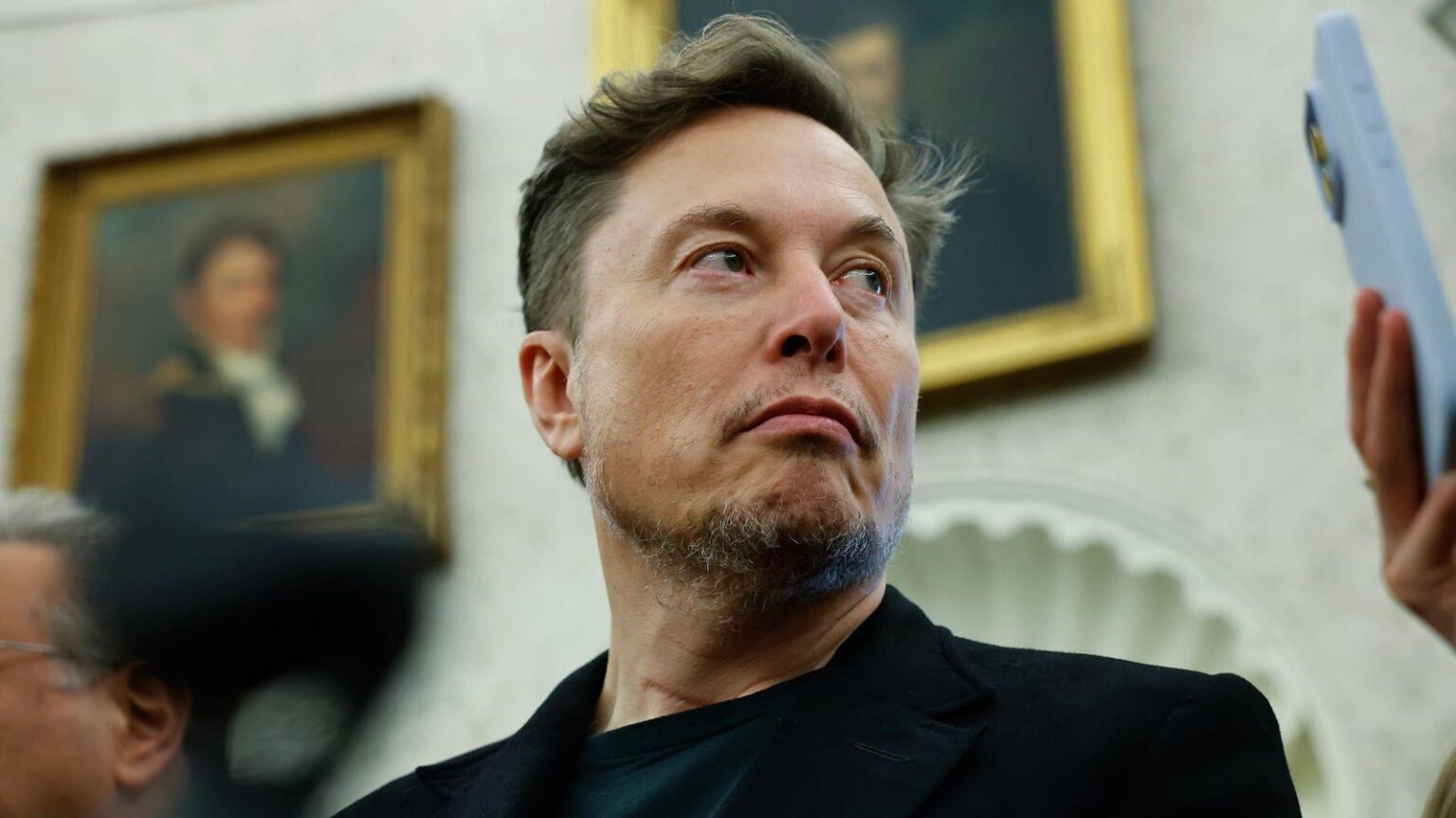Topline
The Trump administration will not have to provide documents and testimony about billionaire Elon Musk’s Department of Government Efficiency—at least for now—as Supreme Court Chief Justice John Roberts granted the government’s request to temporarily halt movement in a case over whether DOGE has to be transparent about its actions.
Elon Musk in the Oval Office at the White House on May 21 in Washington, DC.
Getty ImagesKey Facts
Roberts granted a request from the Trump administration to stop discovery in an ongoing lawsuit over whether DOGE has to comply with Freedom of Information Act (FOIA) requests, which means its records could be made publicly available.
His ruling is temporary and will only apply until the full court can issue a more lasting order about whether or not the Trump administration has to turn over documents, and the justice did not offer any reasoning behind his decision in Friday’s order.
The Trump administration has argued the requests for information made by left-leaning watchdog Citizens for Responsibility and Ethics in Washington (CREW), which brought the case, are “extraordinarily overbroad and intrusive.”
The discovery process would have required the government to turn over records and testimony, including a deposition by DOGE Administrator Amy Gleason, whom the Trump administration publicly named as the head of DOGE in an attempt to further distance Musk from the agency, after the billionaire’s leadership of DOGE started coming under scrutiny in court.
CREW is suing DOGE for failing to comply with its FOIA requests for information about DOGE’s role in the mass firings and sweeping cuts to federal agencies that took place after President Donald Trump’s inauguration, but the Trump administration argues DOGE is not a federal agency that has to respond to FOIA requests.
Roberts’ ruling means DOGE will be able to continue withholding documents for now while the Supreme Court deliberates, though it’s still possible they could be forced to turn them over in the future.
What To Watch For
Roberts’ order temporarily blocks the discovery from taking place while the Supreme Court weighs a more lasting ruling. It’s unclear when that could come out, and if the court could still require DOGE to turn over its records. The Trump administration has also asked the Supreme Court to take up the issue for oral arguments—which could prolong the dispute for months—but it’s unclear if the court will decide to do so.
Chief Critic
CREW argued in a Supreme Court filing Friday, prior to the court’s ruling, that there was “no basis” to grant the Trump administration’s request by blocking the records’ release, claiming the government “offers no coherent theory on how responding to modest discovery will cause it irreparable harm.” The organization slammed the Trump administration’s request to halt discovery as a delay tactic, which comes after the government has already failed to start the discovery process despite a lower court ordering them to do so 10 weeks ago. The government’s request further stymies “CREW’s and the public’s urgent need for information about DOGE’s ‘unprecedented’ operations as it continues to exercise its ‘substantial authority over vast swathes of the federal government’ with “unusual secrecy,’” CREW argued.
Key Background
Trump created DOGE after taking office, and Musk and the group quickly spearheaded sweeping cuts throughout the federal government, seeking to shutter some agencies entirely while making cuts to others and laying of large swaths of the federal workforce. The group has garnered widespread scrutiny for its actions—which also include seeking access to private databases throughout the government—and CREW’s lawsuit is one of several major legal challenges DOGE has faced for its actions. While Musk has claimed that DOGE’s work is subject to “maximum transparency,” the agency has come under fire for not being forthcoming about its work: In addition to CREW, the Center for Biological Diversity also sued DOGE over not complying with FOIA rules, and the group’s work and staff has been controversially shrouded in secrecy. The Trump administration only publicly named Gleason as the head of DOGE following court hearings in which the government’s own lawyers were not able to articulate who was running the agency, telling judges they “[didn’t]
know” who was serving as the administrator or even if there was one at that time.
Further Reading
This story is breaking and will be updated.
Read the full article here


